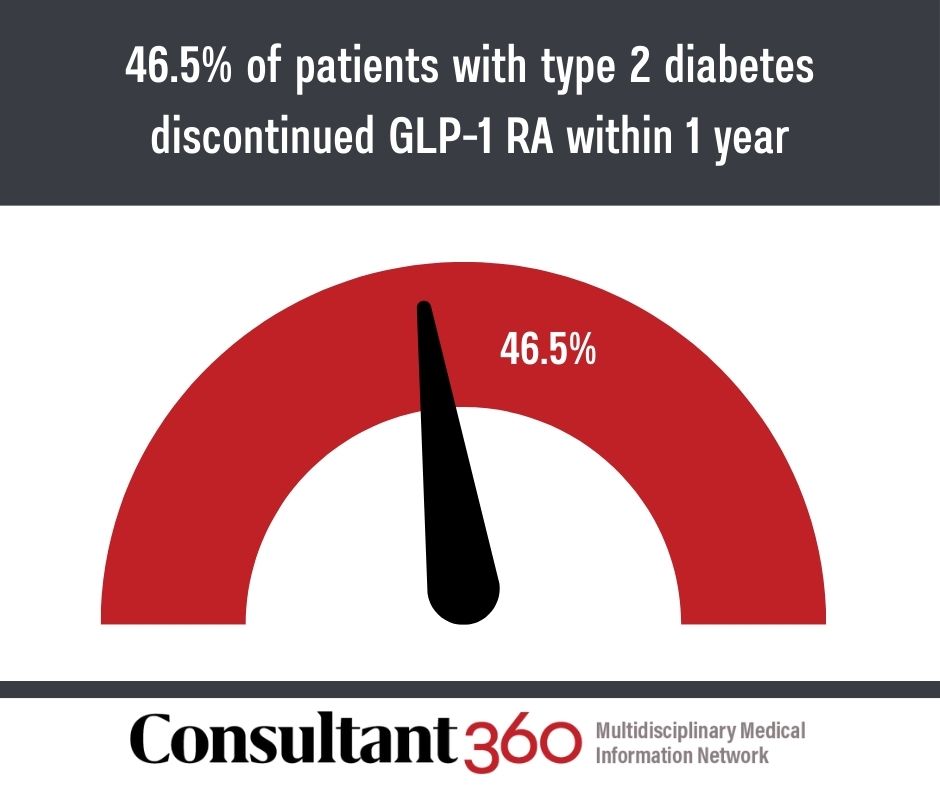Most Patients Discontinue GLP-1 Drugs Within a Year, Higher Dropout for Weight Loss Users
A new study found that nearly half of patients with type 2 diabetes and almost two-thirds of those without the condition discontinue glucagon-like peptide-1 receptor agonists (GLP-1 RAs) within a year of starting treatment.
The retrospective cohort study analyzed 125,474 adults who initiated liraglutide, semaglutide, or tirzepatide to treat obesity or being overweight between 2018 and 2023. Researchers tracked discontinuation rates over 2 years and assessed factors associated with stopping and restarting therapy.
The findings indicate that discontinuation rates were significantly higher among patients without type 2 diabetes, with 64.8% stopping treatment within the first year compared with 46.5% of those with diabetes. Among those who discontinued, 47.3% of patients with type 2 diabetes and 36.3% of those without reinitiated therapy within a year. Weight loss was associated with a lower likelihood of stopping treatment, while gastrointestinal adverse events increased discontinuation risk. Patients with type 2 diabetes who had incomes above $80,000 were also less likely to discontinue therapy. Conversely, weight regain following discontinuation strongly predicted reinitiation, with a 1% weight increase associated with a 2.3% higher likelihood of resuming GLP-1 RAs in patients with type 2 diabetes and a 2.8% increase for those without.

The study authors noted that insurance coverage for these medications is often restricted to diabetes management, potentially contributing to the higher discontinuation rates among patients without type 2 diabetes. Gastrointestinal side effects, including nausea and vomiting, were also a major factor in treatment cessation.
The use of electronic health record data may not have captured all reasons for discontinuation, and insurance status was not directly analyzed. Additionally, the impact of recent GLP-1 RA shortages was not factored into the findings.
“Lack of medication adherence may limit the long-term health benefits, such as cardiovascular risk reduction, associated with GLP-1 RA therapy,” the study authors wrote. “Our analysis suggests greater efforts are needed to increase access and adherence for patients without type 2 diabetes and those with lower incomes.”
Reference
Rodriguez PJ, Zhang V, Gratzl S, et al. Discontinuation and Reinitiation of Dual-Labeled GLP-1 Receptor Agonists Among US Adults With Overweight or Obesity. JAMA Netw Open. 2025;8(1):e2457349. Published 2025 Jan 2. doi:10.1001/jamanetworkopen.2024.57349


